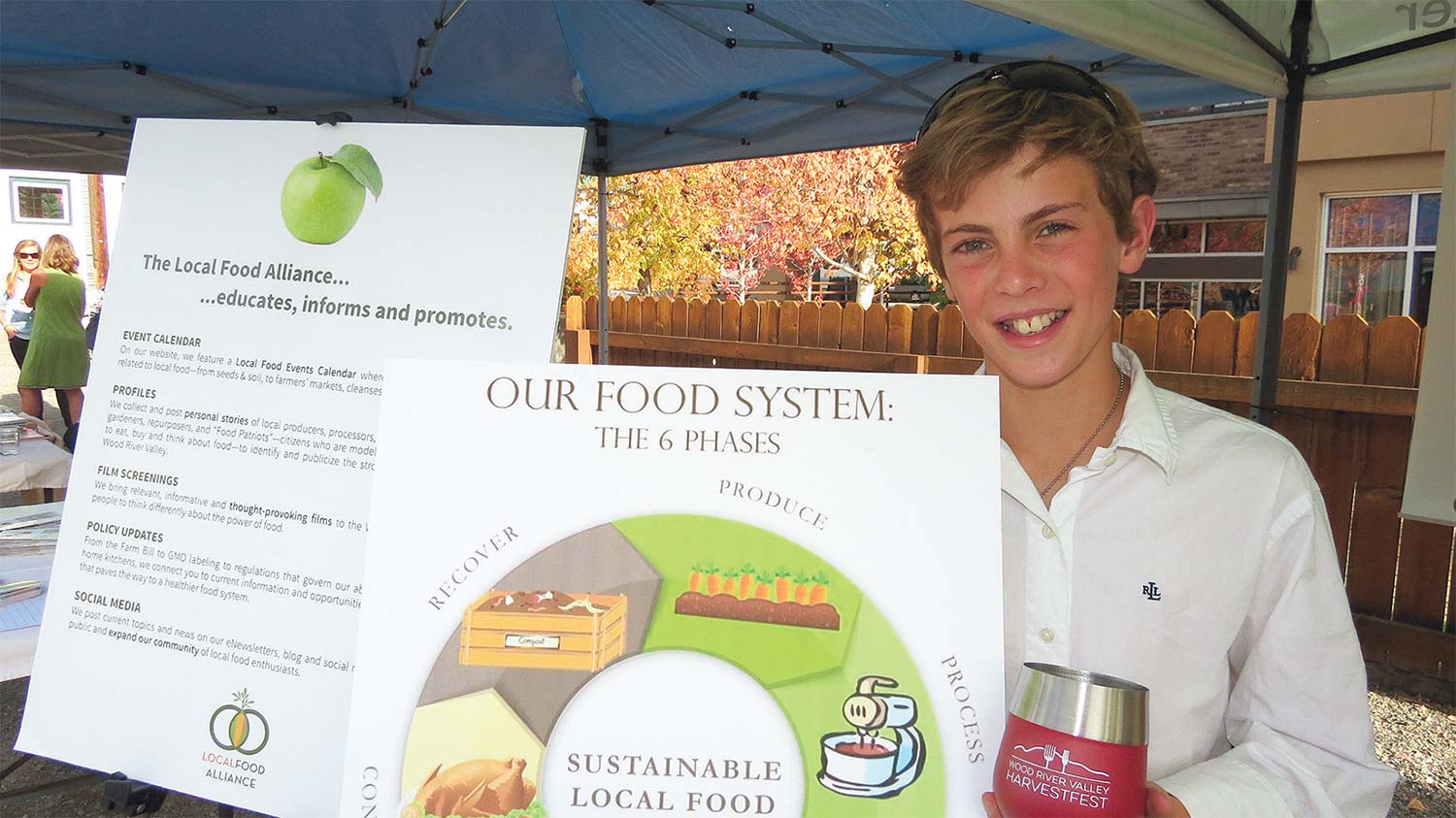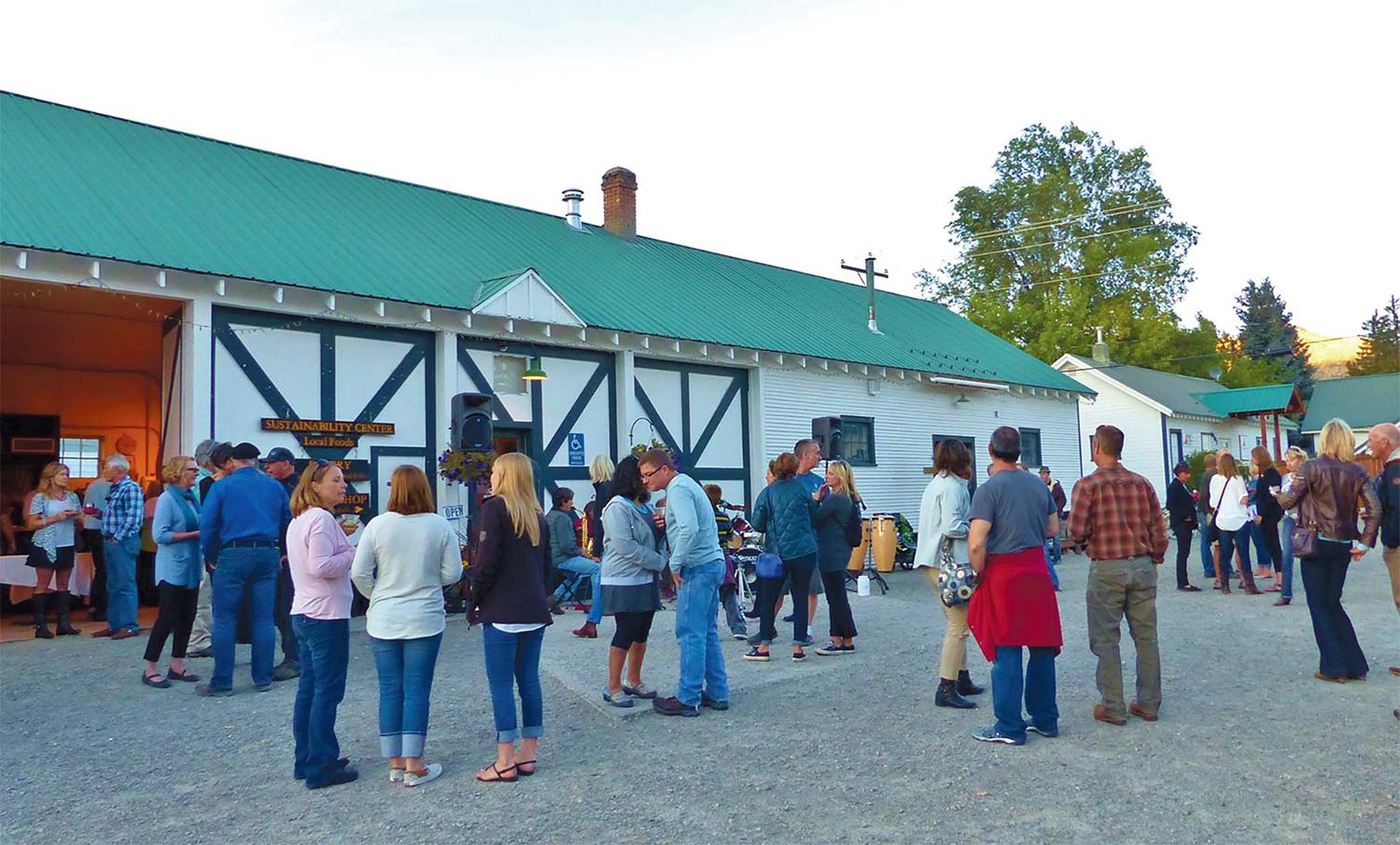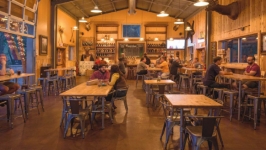Building a Backbone
At Syringa Mountain School in Hailey, Taco Tuesdays don’t involve a speck of mystery meat. The grassfed beef is raised at Double Springs Ranch near Challis; the onions originate at King’s Crown Organics in Glenns Ferry; the bell peppers, cilantro and lettuce ripen at Thousand Springs in Hagerman; the black beans come from M&M Heath Farms in Buhl; and fresh salsa is prepared up the road at Despo’s in Ketchum.
Depending on the season—and which vegetables from Syringa’s school garden are ripe—the taco ingredients change from week to week.
Part of the success of this pilot farm-to-school lunch program, which offers locally grown meals five days a week at Syringa, is involving kids in the process. Syringa incorporates edible education into its curriculum and, in turn, not only does the school garden’s bounty offset some of the food costs, but the kids eat meals they might never eat at home, like ham and bean soup.
“It’s the right thing to do for the kids, for their nutrition and to support the farmers,” said Al McCord, school lunch chef and owner of Wood River Sustainability Center. “It’s not an economic driver—it’s an ethical one.”
This program serves about 350 kids each week and involves the synchronistic efforts of several local entities. To make the program a reality, the Local Food Alliance—an organization that acts as a catalyst for the progression of food projects in the Wood River Valley—coordinated logistics between Syringa and the WRSC. As a team, they tackled concerns like food availability and affordability, allergies, technology, logistics and implementation. After the school board approved the program, LFA helped bring in consulting chef Ann Cooper, who formerly worked with Alice Waters of Berkeley’s famous Chez Panisse.


The Stanford Social Innovation Review has called organizations that do this kind of behind-the-scenes work “backbone organizations,” or entities that facilitate “large-scale systemic change through collective impact.” Local Food Alliance founder Ali Long was intrigued by this concept. A philanthropist interested in using social investment to stimulate food systems, Long said she saw the opportunity “to impact a large number of issue areas, especially bringing food systems back to the local and sustainable versus global.”
In 2013—impressed by the various Wood River Valley organizations working to create a more robust food economy—Long cofounded Local Food Alliance with food writer and school food strategy advocate Stacy Whitman.
“We formed in order to support existing efforts—we’re not just another nonprofit,” Long said. “We aim to be the go-to source of all food-related information and efforts. Everyone in the business of food should know that we support them.”
Like a backbone to a body, LFA’s support is foundational. With the farm-to-school lunch program, for example, LFA worked hand-in-hand with other organizations to facilitate outreach and education programming. “They have been the liaison between WRSC, farms and faculty in terms of integrating the program with the school,” said McCord. Not only has this program directly impacted individuals, businesses, producers and transporters, but it has also created a model that can be implemented into other schools.
Another model program facilitated by Local Food Alliance and the Wood River Community YMCA in Ketchum is a solar-powered educational greenhouse, officially named Bonni’s Garden & Learning Lab, where kids can learn about plants and dig their hands in the soil. “[We hope to] instill a love of gardening and fresh vegetables at an early age,” said YMCA Director of Youth Development Teressa Johnson. “The kids love eating fresh spinach.”
In addition to its educational efforts, the Local Food Alliance also helped facilitate last September’s HarvestFest, a one-day, community-wide food event highlighting Hailey restaurants. Chefs from spots like CK’s Real Food, Rasberrys Catering and DaVinci’s prepared small plates utilizing food from regional farms. Attendees roamed from restaurant to restaurant, snacking on local food and sipping drinks, before a final party at the Wood River Sustainability Center. The Local Food Alliance worked closely with the WRSC, Idaho’s Bounty, The Hunger Coalition and an array of restaurateurs to create this sold-out event.
The Local Food Alliance is also committed to building enthusiasm for what’s happening in the local food system. On their website, LFA’s food event calendar informs the public about film screenings, guest speakers, farm-to-table dinners and volunteer opportunities. Long and Whitman also pen a sponsored column in The Weekly Sun, which provides a deeper look at food-related news and local profiles.
Long says that the LFA’s recent merger with Sun Valley Institute for Resilience—a newly formed organization that focuses on energy, food, water, environment and community to benefit the quality of life in the Wood River Valley—will allow the organization’s food efforts “to be coordinated with other systems.”
“It’s about local people, local impact,” said Long. “Like a concentric circle, food is a way to connect with and interact with the community.”






